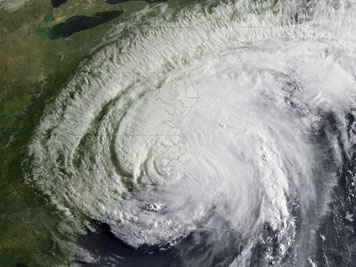 Check for hurricane season predictions
Check for hurricane season predictions
The Atlantic hurricane season runs from June 1 through November 30 every year.
Please check this website or https://www.noaa.gov/ for more information on the likelihood of hurricanes and their intensity.
Strong El Ninos and wind shear typically suppress development of Atlantic hurricanes, so the prediction for weak conditions points to more hurricane activity this year. Also, warmer sea surface temperatures tend to fuel hurricanes as they move across the ocean. However, the climate models are showing considerable uncertainty, which is reflected in the comparable probabilities for an above-normal and near-normal season.
As with every hurricane season, it is important to have a hurricane preparedness plan in place. Information on individual and family preparedness can be found at www.ready.gov and www.nhc.noaa.gov/prepare/. Follow the National Weather Service on Facebook and Twitter.
Preparedness Tips Before, During and After a Hurricane
-
Build an emergency kit, strengthen your home, and make a family evacuation plan.
-
Listen to your all-weather radio or TV for information.
-
During the hurricane, take refuge in a small interior room, closet or hallway on the lowest level.
-
Stay alert for extended rainfall and subsequent flooding even after the hurricane or tropical storm has ended.
-
Follow your local officials’ evacuation order! If you evacuated, return home only when officials say it is safe.
-
After the hurricane has passed, drive only if necessary and avoid flooded roads and washed out bridges.
USACE Role in Hurricane Response
Every year, the U.S. Army Corps of Engineers, part of the federal government’s unified national response to disasters and emergencies, sends hundreds of people to respond to disasters around the world. Here at home, USACE assists the Department of Homeland Security and Federal Emergency Management Agency as the primary agency for public works and engineering-related emergency support. FEMA assigns USACE missions to include: debris management, commodities distribution, temporary housing, temporary roofing, emergency power, infrastructure assessment, and support to urban search and rescue.
-
USACE uses pre-awarded contracts that can be quickly activated for missions such as debris removal, temporary roofing, commodities distribution, and generator installation.
-
When disasters occur, USACE teams and other resources are mobilized from across the country to assist our local districts and offices to deliver our response missions.